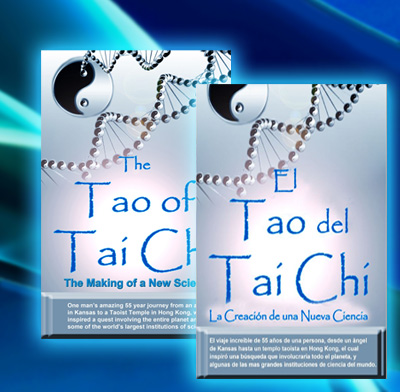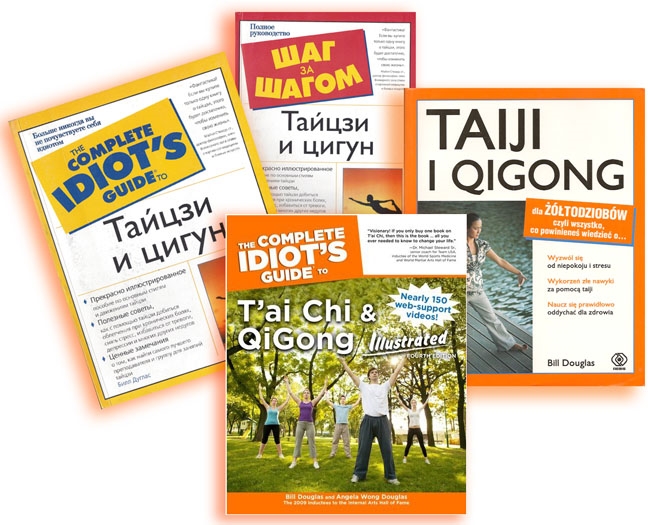arthritis and Tai Chi & qigong (scroll down for yoga, qigong, meditation, mindfulness)
OSTEOARTHRITIS OF KNEE/TAI CHI!
Achy knees? Tai chi may work as well as - or better than -
physical therapy
Read article at
Washington Post, May 16, 2016
(Reuters Health) - Tai chi may work as well as traditional
physical therapy for easing pain in people with knee
osteoarthritis, a small study suggests ... findings suggest
that tai chi may offer some relief to patients without the
potential cost of attending physical therapy or side effects
of medications, said Romy Lauche of the Australian Research
Center in Complimentary and Integrative Medicine at the
University of Technology Sydney.
Read entire
Reuter's article ...
(HealthDay News) -- Legions of arthritis sufferers try
physical therapy and anti-inflammatory drugs to no avail. Now,
a new study looks East for relief -- to the martial art tai
chi ... The investigators noted that the tai chi group also
had significantly greater relief from depression than those in
physical therapy. Past studies have shown that tai chi can be
effective in helping sleep, while reducing stress, anxiety and
depression.
HealthDay news ...
TUFTS
UNIVERSITY PUBLICATION: TAI CHI MATCHES MORE EXPENSIVE
PHYSICAL THERAPY IN OSTEOARTRITIC KNEE TREATEMENT --
The group of patients who received tai chi therapy for knee
pain due to osteoarthritis also showed significant improvement
when it came to depression and quality of life.
By Monica
Jimenez, June 9, 2016
Tai chi produces the same
benefits as physical therapy for patients suffering from knee
osteoarthritis, according to a new study by researchers at the
Tufts School of Medicine.
http://now.tufts.edu/articles/tai-chi-and-ailing-joints
Tai Chi Shows Relief for Arthritis Pain,
Improves Well-Being and Enhances Sleep
In the
largest study to date of the Arthritis Foundation's Tai Chi
program, participants showed improvement in pain, fatigue,
stiffness and sense of well-being. Older adults also improved
their ability to reach while maintaining balance, said Leigh
Callahan, PhD, the study's lead author and professor in the
University of North Carolina at Chapel Hill School of
Medicine. "Our study shows that there are significant benefits
of the Tai Chi course for individuals with all types of
arthritis, including fibromyalgia, rheumatoid arthritis and
osteoarthritis," Callahan said.
In the study, 354
participants were recruited from 20 sites in North Carolina
and New Jersey and randomly assigned to two groups. The
intervention group received the 8-week, twice-weekly Tai Chi
course immediately while the other group was a delayed control
group.
-- Global Health Aging, February
27, 2015
ARTHRITIS. T'ai Chi's low impact causes no
joint damage (unlike other higher impact exercises), while its
weight-bearing aspect may encourage development of bone mass
and connective tissue. WTCQD Note: Those with arthritic knees
may want to do modified Tai Chi forms sharing weight on both
legs rather than fully centering the weight over one knee.
Harvard Health Publications
Arthritis. In a 40-person study at Tufts University, presented
in October 2008 at a meeting of the American College of
Rheumatology, an hour of tai chi twice a week for 12 weeks
reduced pain and improved mood and physical functioning more
than standard stretching exercises in people with severe knee
osteoarthritis. According to a Korean study published in
December 2008 in Evidence-based Complementary and Alternative
Medicine, eight weeks of tai chi classes followed by eight
weeks of home practice significantly improved flexibility and
slowed the disease process in patients with ankylosing
spondylitis, a painful and debilitating inflammatory form of
arthritis that affects the spine.
Read more at Harvard Health Publications ...
In controlled experiments, glucosomine and shark
cartilage have failed to reliably relieve knee pain, but a
2011 review of multiple studies of Tai Chi ... concluded that
it is generally effective at controlling pain and improving
physical function.
-- Parade Magazine (the
world's #1 most
read magazine), January 27, 2013
Study finds decrease in pain and fatigue among individuals
with rheumatoid arthritis after 12 weeks of tai chi.
--
Daejeon University in Korea
Mind-body. You can
soothe achy joints and improve mobility with mind-body
techniques such as progressive muscle relaxation, yoga,
meditation, tai chi and guided imagery. A recent study from
Korea found that tai chi is significantly beneficial for
controlling pain and improving physical function in people who
have osteoarthritis in the knee. For details about various
options, consult the Arthritis Foundation's guide to
alternative and natural therapies.
-- iVillage,
June, 2012 - Beyond Aspirin: How to Ease Pain When You Have
Arthritis
Most alternative treatments have either
not been scientifically tested or subjected to limited
investigations, says Arthritis Research UK.
Of 25
therapies, only a handful were judged to have enough medical
evidence to support their use.
These included acupuncture,
massage, tai chi and yoga ...
Very little evidence was
found in support of commonly-used therapies such as copper
bracelets and magnetic therapy for arthritis, fibromyalgia or
lower back pain.
For their analysis the researchers
searched for randomised controlled trials - comparing the
given therapy with a placebo, usual care or another treatment
- that had been written up in English and published before the
end of May 2011.
--
BBC
News Online, Health Editor, Jan. 8, 2013
Osteoarthritis:
Twelve studies
were included in the study, with 5 randomized controlled
clinical trials and 7 nonrandomized controlled clinical trials
dating up to June 2007. The review showed promising evidence
in support of using Tai Chi to reduce pain associated with
osteoarthritis and even reported larger effect sizes in pain
reduction from Tai Chi than from other popular interventions,
such as using nonsteroidal anti-inflammatory drugs. -
Medscape Today, from WebMD, 10/26/2010
Rheumatoid Arthritis:
The review mainly
showed that Tai Chi statistically improved ankle plantar
flexion in those with RA, but most other measures such as
activities of daily living and swollen joints showed no
improvements after Tai Chi interventions. None of the studies
indicated any harmful effects of Tai Chi practice, and the
review reported that adherence rates in the Tai Chi
interventions were higher than in the controls, indicating
that subjects may enjoy participating in Tai Chi over other
exercises. - Medscape Today, from WebMD,
10/26/2010
Older people with knee pain may
get help from tai chi
Knee pain from
osteoarthritis is a common and often chronic ailment for older
people. But a new study finds that practicing tai chi
exercises may not only reduce osteoarthritis pain, but improve
function as well.
-- Los Angeles Times, Oct. 30, 2009
Related articles below:
Science Daily
Private Healthcare UK
Irish Health
Arthritis. In a
40-person study at Tufts University, presented in October 2008
at a meeting of the American College of Rheumatology, an hour
of tai chi twice a week for 12 weeks reduced pain and improved
mood and physical functioning more than standard stretching
exercises in people with severe knee osteoarthritis. According
to a Korean study published in December 2008 in Evidence-based
Complementary and Alternative Medicine, eight weeks of tai chi
classes followed by eight weeks of home practice significantly
improved flexibility and slowed the disease process in
patients with ankylosing spondylitis, a painful and
debilitating inflammatory form of arthritis that affects the
spine.
Harvard Medical School's Health Publications,
May, 2009
FIND MUCH MORE RESEARCH AT THE "QIGONG
INSTITUTE DATABASE"
Since 1984, collecting
breaking medical/science research on Qigong, Tai Chi, Yoga,
and Mind-Body Education
Click here
for Qigong Institute Database...
YOGA RESEARCH ON ARTHRITIS ...
.Yoga
helps relieve chronic pain
Yoga can help people
with arthritis, fibromyalgia, migraine, low
back pain, and many other types of chronic pain conditions. A
study published in Annals of Internal Medicine found that
among 313 people with chronic low back pain, a weekly yoga
class increased mobility more than standard medical care for
the condition. Another study published at nearly the same time
found that yoga was comparable to standard exercise therapy in
relieving chronic low back pain.
A meta-analysis of 17
studies that included more than 1,600 participants concluded
that yoga can improve daily function among people with
fibromyalgia osteoporosis-related curvature of the spine.
Practicing yoga also improved mood and psychosocial
well-being.
-- HARVARD HEALTH PUBLISHING
* NOTE: World Tai Chi & Qigong Day advises
consulting your physician before beginning any new exercise,
herbal, diet, or health program. The research listed here is
meant to stimulate a discussion between you and your
physician, health insurance carrier, etc., not as medical
advise. Research and comments provided here are hoped to
stimulate a more robust discussion of powerful natural
mind/body health tools. Popular media, health media, and
government must increase attention to stunning emerging
research, including the UCLA study indicating Tai Chi
participants enjoyed a 50% increase in immune system
resistance to viral infection.
- To learn more about tai chi & qigong medical research,
see the below book,
"the complete idiot's guide to tai chi & qigong,", and also
"Harvard Medical School Guide to Tai Chi," and
"The way of qigong: the art and science of chinese energy healing."
Click to purchase this acclaimed best-selling Tai Chi book, with nearly 150 web-video support videos for the detailed text/illustration instruction as a "gift of health" for loved ones.
A new paradigm in multi-media educational books.
"Visionary! If you only buy one book on T'ai Chi, then this
is the book. This book is all you ever needed to know to
change your life. I have taught T'ai Chi for several decades
myself, yet I have now read Bill's book from cover to cover
seven times, and still get something new from it each time."
– Dr. Michael Steward Sr., D.MA, Ph.D., MA, Senior
Coach for Team USA, Inductee of the World Sports Medicine and
World Martial Arts Hall of Fame
"Sometimes Chinese
culture can be difficult to explain. Sifu Bill Douglas
successfully uses American culture to explain the art of T'ai
Chi Chuan. He simplifies difficult concepts, making them
easier to understand. This book takes the best parts of T'ai
Chi and makes them understandable [to Westerners] without
requiring a grounding in Chinese culture and history."
– Sifu Yijiao Hong, USA All-Tai Chi Grand Champion and USA
Team member; Certified International Coach and Judge,
International Wushu Federation
"Douglas has
achieved for QiGong what Apple did for the computer. He's
brought it to the people … great place to start for beginners.
… Teachers may also find this an excellent manual 'on how to
explain these concepts to the general public…'"
– R.
Poccia,
"The Tao of Tai Chi: The Making of a New Science" (now available in both English and Spanish))

Harvard's Dr. Peter Wayne discusses Tai Chi, Qigong and Bio-Energy with Neuro-biologist, Dr. Richard Hammerschlag,
with WORLD TAI CHI & QIGONG DAY ONLINE SUMMIT HOSTS
World Tai Chi & Qigong Day's series of Official ONLINE
SUMMITS, have brought some of the top minds in Tai Chi, Qigong,
and cutting edge scientists researching Mind-Body practices.
World Tai Chi & Qigong Day's global health education work was
recognized on page 25 of "The Harvard Medical School Guide to
Tai Chi" ...
A reflection of how successful the invasion
has been is World Tai Chi Day, organized by Bill Douglas. One of
the purposes of this day is ‘to bring together people across
racial, economic, religious, and geo-political boundaries, to
join together for the purpose of health and healing, providing
an example to the world.' Millions of people around the world –
65 nations participated in 2011 – gather one day each year to
celebrate the health and healing benefits of Tai Chi and Qigong.
— The Harvard Medical School Guide to Tai Chi (page 25)
Harvard Medical School Researchers Launch 'Tai Chi as Therapy' Lecture to Commemorate World Tai Chi Day
The new Harvard Medical School Guide to Tai Chi is a powerful
reference book for all tai chi and qigong advocates, teachers,
etc. The Harvard Guide cites WorldTaiChiDay.org's work in
expanding global awareness of tai chi and qigong!
Our
efforts have exposed over ONE BILLION potential viewers/readers
of mass media to Tai Chi and Qigong and its myriad health
benefits, via our annual WTCQD worldwide events.
